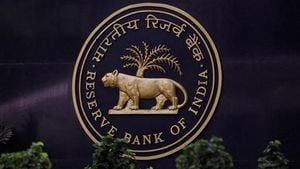In recent weeks, Spain has witnessed a surge in demand for nuclear shelters amid rising geopolitical tensions and fears of conflict, particularly linked to the ongoing situation in Ukraine. Reports indicate that inquiries regarding these shelters have skyrocketed, with one company noting a daily increase from about ten inquiries to as many as sixty. This dramatic uptick reflects a growing concern among citizens about personal safety and preparedness for potential emergencies.
Fernando Diaz, the CEO of a prominent nuclear shelter marketing firm, described the situation as "crazy," emphasizing that the inquiries have doubled over the past two weeks. He attributed this heightened interest to the current geopolitical climate, which is marked by instability and natural disasters. Despite the influx of inquiries, Diaz cautioned that not every request translates into a purchase.
In Spain, the prices for these shelters start at approximately 39,000 euros, offering basic emergency facilities complete with furniture and essential equipment. For those looking for larger and more sophisticated options, various projects are available, including shelters that can accommodate up to six people and feature sustainable energy solutions for self-sufficiency. The average cost of a shelter is around 100,000 euros, with sizes typically around 18 square meters.
Another company, Bunker World, reported a remarkable 60% increase in inquiries recently. Their offerings start at 60,000 euros, with models like the ISO 20 NBQ providing essential isolation solutions. This growing trend illustrates how rising rental prices and the fear of instability are pushing individuals to invest in their safety and security.
As concerns about safety escalate, the Spanish region of Valencia has also been grappling with the aftermath of catastrophic flooding that occurred in late October 2024. On March 29, 2025, more than 25,000 demonstrators took to the streets of Valencia, demanding accountability from regional president Carlos Mazon for his government's inadequate response to the floods that claimed at least 235 lives, including 227 in Valencia alone.
The protesters, organized by various associations and unions, chanted slogans such as "Mazon to prison," "No oblivion, no forgiveness," and "Justice for all victims." They carried photographs of those who perished in the floods and criticized Mazon for his failure to provide timely warnings about the impending disaster, despite alerts issued by the national meteorological agency that morning.
This demonstration marks the sixth such event since the floods, with citizens expressing their frustration over the government's delayed response and lack of support for victims. Many survivors have criticized the authorities for not issuing early warnings, which they believe could have saved lives. They argue that the majority of victims either drowned in their homes or were swept away by the floodwaters after receiving late alerts on their mobile phones.
As the political climate heats up, Mazon has faced mounting pressure to resign, yet he remains steadfast in his intention to complete his term until 2027. His administration has faced severe criticism for its handling of the disaster, with many residents feeling abandoned in their time of need.
In light of these events, it’s clear that the citizens of Spain are increasingly aware of their vulnerability in the face of both natural disasters and geopolitical threats. The rising interest in nuclear shelters and the protests in Valencia underscore a growing desire for security and accountability from those in power.
As Spain navigates these challenges, the interplay between individual safety concerns and governmental responsibility will likely remain a central theme in the national discourse. Whether through investing in personal protective measures like nuclear shelters or demanding better disaster preparedness from their leaders, the people of Spain are making their voices heard.
In conclusion, the current climate in Spain reflects a society grappling with uncertainty and fear. From the surge in demand for nuclear shelters to the outcry over government negligence following devastating floods, it is evident that citizens are seeking both personal safety and accountability from their leaders. As these issues unfold, the implications for Spain's political landscape and societal norms will be profound.




